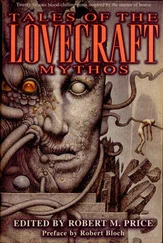Robert Pirsig - Lila. An Inquiry Into Morals
Здесь есть возможность читать онлайн «Robert Pirsig - Lila. An Inquiry Into Morals» весь текст электронной книги совершенно бесплатно (целиком полную версию без сокращений). В некоторых случаях можно слушать аудио, скачать через торрент в формате fb2 и присутствует краткое содержание. Жанр: Современная проза, на английском языке. Описание произведения, (предисловие) а так же отзывы посетителей доступны на портале библиотеки ЛибКат.
- Название:Lila. An Inquiry Into Morals
- Автор:
- Жанр:
- Год:неизвестен
- ISBN:нет данных
- Рейтинг книги:3 / 5. Голосов: 1
-
Избранное:Добавить в избранное
- Отзывы:
-
Ваша оценка:
- 60
- 1
- 2
- 3
- 4
- 5
Lila. An Inquiry Into Morals: краткое содержание, описание и аннотация
Предлагаем к чтению аннотацию, описание, краткое содержание или предисловие (зависит от того, что написал сам автор книги «Lila. An Inquiry Into Morals»). Если вы не нашли необходимую информацию о книге — напишите в комментариях, мы постараемся отыскать её.
Lila. An Inquiry Into Morals — читать онлайн бесплатно полную книгу (весь текст) целиком
Ниже представлен текст книги, разбитый по страницам. Система сохранения места последней прочитанной страницы, позволяет с удобством читать онлайн бесплатно книгу «Lila. An Inquiry Into Morals», без необходимости каждый раз заново искать на чём Вы остановились. Поставьте закладку, и сможете в любой момент перейти на страницу, на которой закончили чтение.
Интервал:
Закладка:
The Metaphysics of Quality has much much more to say about ethics, however, than simple resolution of the Free Will vs. Determinism controversy. The Metaphysics of Quality says that if moral judgments are essentially assertions of value and if value is the fundamental ground-stuff of the world, then moral judgments are the fundamental ground-stuff of the world.
It says that even at the most fundamental level of the universe, static patterns of value and moral judgment are identical. The Laws of Nature are moral laws. Of course it sounds peculiar at first and awkward and unnecessary to say that hydrogen and oxygen form water because it is moral to do so. But it is no less peculiar and awkward and unnecessary than to say chemistry professors smoke pipes and go to movies because irresistible cause-and-effect forces of the cosmos force them to do it. In the past the logic has been that if chemistry professors are composed exclusively of atoms and if atoms follow only the law of cause and effect, then chemistry professors must follow the laws of cause and effect too. But this logic can be applied in a reverse direction. We can just as easily deduce the morality of atoms from the observation that chemistry professors are, in general, moral. If chemistry professors exercise choice, and chemistry professors are composed exclusively of atoms, then it follows that atoms must exercise choice too. The difference between these two points of view is philosophic, not scientific. The question of whether an electron does a certain thing because it has to or because it wants to is completely irrelevant to the data of what the electron does.
So what Phædrus was saying was that not just life, but everything, is an ethical activity. It is nothing else. When inorganic patterns of reality create life the Metaphysics of Quality postulates that they’ve done so because it’s better and that this definition of betterness — this beginning response to Dynamic Quality — is an elementary unit of ethics upon which all right and wrong can be based.
When this understanding first broke through in Phædrus' mind, that ethics and science had suddenly been integrated into a single system, he became so manic he couldn’t think of anything else for days. The only time he had been more manic about an abstract idea was when he had first hit upon the idea of undefined Quality itself. The consequences of that first mania had been disastrous, and so now, this time, he told himself just to calm down and dig in. It was, for him, a great Dynamic breakthrough, but if he wanted to hang on to it he had better do some static latching as quickly and thoroughly as possible.
13
Latching was what was needed all right. Historically every effort to unite science and ethics has been a disaster. You can’t paste a moral system on top of a pile of amoral objective matter. The amoral objective matter never needs this paste job. It always sloughs it off as superfluous.
But the Metaphysics of Quality doesn’t permit this slough-off. It says, first of all, that amoral objective matter is a low-grade form of morality. No slough-off is possible. It states, second of all, that even if matter weren’t a low grade form of morality there still would be no metaphysical need to show how morals are derived from it. With static patterns of value divided into four systems, conventional moral patterns have almost nothing to do with inorganic or biological nature. These moral patterns are superimposed upon inorganic nature the way novels are superimposed upon computers. They are more commonly opposed to biological patterns than they are supportive of them.
And that is the key to the whole thing.
What the evolutionary structure of the Metaphysics of Quality shows is that there is not just one moral system. There are many. In the Metaphysics of Quality there’s the morality called the laws of nature, by which inorganic patterns triumph over chaos; there is a morality called the law of the jungle where biology triumphs over the inorganic forces of starvation and death; there’s a morality where social patterns triumph over biology, the law; and there is an intellectual morality, which is still struggling in its attempts to control society. Each of these sets of moral codes is no more related to the other than novels are to flip-flops.
What is today conventionally called morality covers only one of these sets of moral codes, the social-biological code. In a subject-object metaphysics this single social-biological code is considered to be a minor, subjective, physically non-existent part of the universe. But in the Metaphysics of Quality all these sets of morals, plus another Dynamic morality are not only real, they are the whole thing.
In general, given a choice of two courses to follow and all other things being equal, that choice which is more Dynamic, that is, at a higher level of evolution, is more moral. An example of this is the statement that, It’s more moral for a doctor to kill a germ than to allow the germ to kill his patient. The germ wants to live. The patient wants to live. But the patient has moral precedence because he’s at a higher level of evolution.
Taken by itself that seems obvious enough. But what’s not so obvious is that, given a value-centered Metaphysics of Quality, it is absolutely, scientifically moral for a doctor to prefer the patient. This is not just an arbitrary social convention that should apply to some doctors but not to all doctors, or to some cultures but not all cultures. It’s true for all people at all time, now and forever, a moral pattern of reality as real as H 2O. We’re at last dealing with morals on the basis of reason. We can now deduce codes based on evolution that analyze moral arguments with greater precision than before.
In the moral evolutionary conflict between the germ and the patient, the evolutionary spread is enormous and as a result the morality of the situation is obvious. But when the static patterns in conflict are closer the moral force of the situation becomes less obvious.
A popular moral issue that parallels the germ-patient issue is vegetarianism. Is it immoral, as the Hindus and Buddhists claim, to eat the flesh of animals? Our current morality would say it’s immoral only if you’re a Hindu or Buddhist. Otherwise it’s OK, since morality is nothing more than a social convention.
An evolutionary morality, on the other hand, would say it’s scientifically immoral for everyone because animals are at a higher level of evolution, that is, more Dynamic, than are grains and fruits and vegetables. But the moral force of this injunction is not so great because the levels of evolution are closer together than the doctor’s patient and the germ. It would add, also, that this moral principle holds only where there is an abundance of grains and fruits and vegetables. It would be immoral for Hindus not to eat their cows in a time of famine, since they would then be killing human beings in favor of a lower organism.
Because a value-centered Metaphysics of Quality is not tied to substance it is free to consider moral issues at higher evolutionary levels than germs and fruits and vegetables. At these higher levels the issues become more interesting.
Is it scientifically moral for a society to kill a human being? That is a very big moral question still being fought in courts and legislatures all over the world.
An evolutionary morality would at first seem to say yes, a society has a right to murder people to prevent its own destruction. A primitive isolated village threatened by brigands has a moral right and obligation to kill them in self-defense since a village is a higher form of evolution. When the United States drafted troops for the Civil War everyone knew that innocent people would be murdered. The North could have permitted the slave states to become independent and saved hundreds of thousands of lives. But an evolutionary morality argues that the North was right in pursuing that war because a nation is a higher form of evolution than a human body, and the principle of human equality is an even higher form than a nation. John Brown’s truth was never an abstraction. It still keeps marching on.
Читать дальшеИнтервал:
Закладка:
Похожие книги на «Lila. An Inquiry Into Morals»
Представляем Вашему вниманию похожие книги на «Lila. An Inquiry Into Morals» списком для выбора. Мы отобрали схожую по названию и смыслу литературу в надежде предоставить читателям больше вариантов отыскать новые, интересные, ещё непрочитанные произведения.
Обсуждение, отзывы о книге «Lila. An Inquiry Into Morals» и просто собственные мнения читателей. Оставьте ваши комментарии, напишите, что Вы думаете о произведении, его смысле или главных героях. Укажите что конкретно понравилось, а что нет, и почему Вы так считаете.











